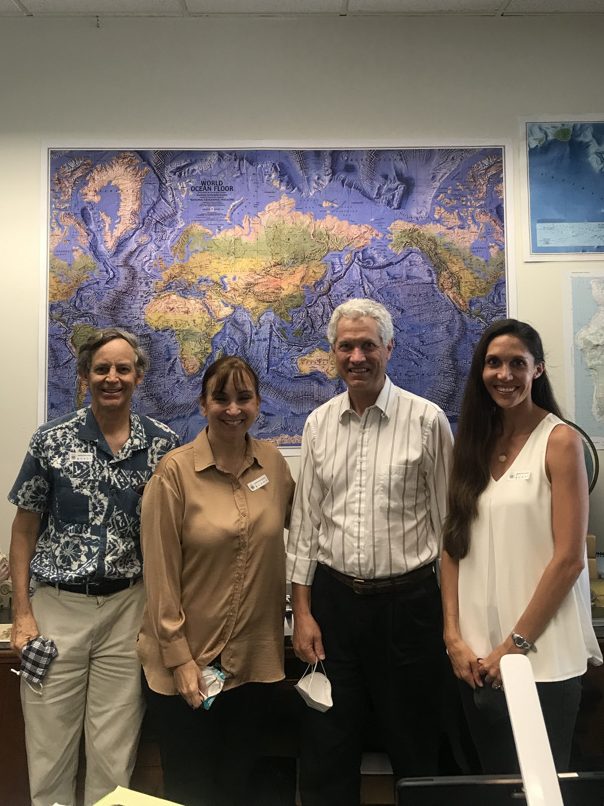
Surfrider Foundation Celebrates 11 bills that will protect the ocean, waves, and beaches of Hawaiʻi
The 2022 legislative session officially ended on May 5. During this session, Surfrider Foundation tracked a total of ~60 priority bills and periodically tracked/watched another 60+ lower priority bills. These bills covered a range of topics, including clean water and cesspools, plastic pollution, coastal preservation and beach protection, Red Hill, climate change, sustainable tourism, environmental justice, and everything in between.
In addition to tracking bills, Surfrider Foundation submitted 63 written testimonies of 37 different bills throughout the session on behalf of the Surfrider Foundation Hawaiʻi Region. This does not include the dozens of testimonies submitted by other volunteers and community members. In March, we also held a virtual Stoked on Civics training as an intro to the capitol.hawaii.gov website, how to submit testimony, our legislative priority areas, and our system of tracking bills.
Impressively, we had 11 priority bills pass this session. Of the thousands of bills introduced each year, fewer than 10% make it to the Governorʻs desk - great job, team! We are particularly celebrating the passage of three water quality/cesspool bills that will provide financial incentives for cesspool upgrades.
Big shout out to Camile Cleveland, volunteer Policy Coordinator with the Oʻahu Chapter, who helped manage our policy tracking spreadsheet, provide testimony, and led the Stoked on Civics training session. She was an incredible asset and provided much support over the last 5 months. Mahalo, Camile!

11 Bills that Passed
- Water quality and cesspools - Passage of HB2195, HB2088 and HB1806. These three bills will work in parallel to provide critical financial incentives to homeowners and business owners to upgrade cesspools.
- HB2195 is a particularly important bill as it represents the first state-based funding for cesspool conversions. Specifically, it establishes a pilot program and provides grants up to $20,000 to qualifying low and moderate income homeowners for upgrading, converting, or connecting a cesspool that meets certain requirements.
- HB2088 allows commercial property owners to leverage non-traditional financing programs for cesspool conversions.
- HB1806 expands the definition of what qualifies as an upgraded system (and thus provides more options to homeowners).
- Coasts and Shorelines - Passage of the following bills that create additional mechanisms for coastal protection.
- HB1672: Expands Special Improvement District designations (potential avenue for managed retreat)
- SB2295: Requires the Department of Transportation to plan for sea level rise for new or amended transportation projects
- HB2229: (Bill died, but funding for project set aside in budget). Funding for special study at ʻEhukai Beach Park (Oʻahu) on the impact of beach burritos and other emergency shoreline stabilizing structures.
- SB3330: (Oʻahu) Pūpūkea Marine Life Conservation District carrying capacity study
- Plastics and Waste Management - Passage of the following bills that create additional mechanisms for coastal protection.
- Red Hill - Passage of the following bills that create additional mechanisms for coastal protection.
The governor has until June 27, 2022 to notify the Legislature of the bills he intends to veto. Final approval or veto deadline is July 12, 2022. Any measure that the governor has not signed or vetoed will become law without his signature.
Bills that Failed
- Our attempt to pass our priority water quality legislation (SB2984/SB350 from 2021) died early this year and will be a top priority for 2023.
- None of the Green Fee bills passed, including the last minute SB775 that tied $30 million in conservation funding to the Transient Accommodation Tax.
- Extended Producer Responsibility (HB2399) died within in final conference committee. The bill, however, had been significantly amended from its original intent and there is an opportunity to pass a better bill next year.
- Ban on leave-on microbead products (e.g. make-up, cosmetics, etc.) (SB2290). While this bill is headed to the governorʻs desk, it was amended in a way that does not actually ban the types of products that was originally intended. Groups are asking the Governor to veto this bill so there is the chance to pass an actual microbead ban in the future.
What's Next?
Though the 2022 statewide legislative session is over, we are already gearing up for 2023. Next year, Surfrider Foundation will be prioritizing coastal protection legislation and a bill to improve Department of Health's water quality monitoring program. In the meantime, you can:
- Focus on local county bills - even though the statewide session is over, county bills and legislative efforts are still underway. Check in with your County council members or review upcoming committee meetings to see if there are local bills that you can support.
- Get out the vote! 2022 is an election year for local, state, and federal representatives. We encourage community members to register to vote and support efforts to protect our ocean, waves, and beaches.
